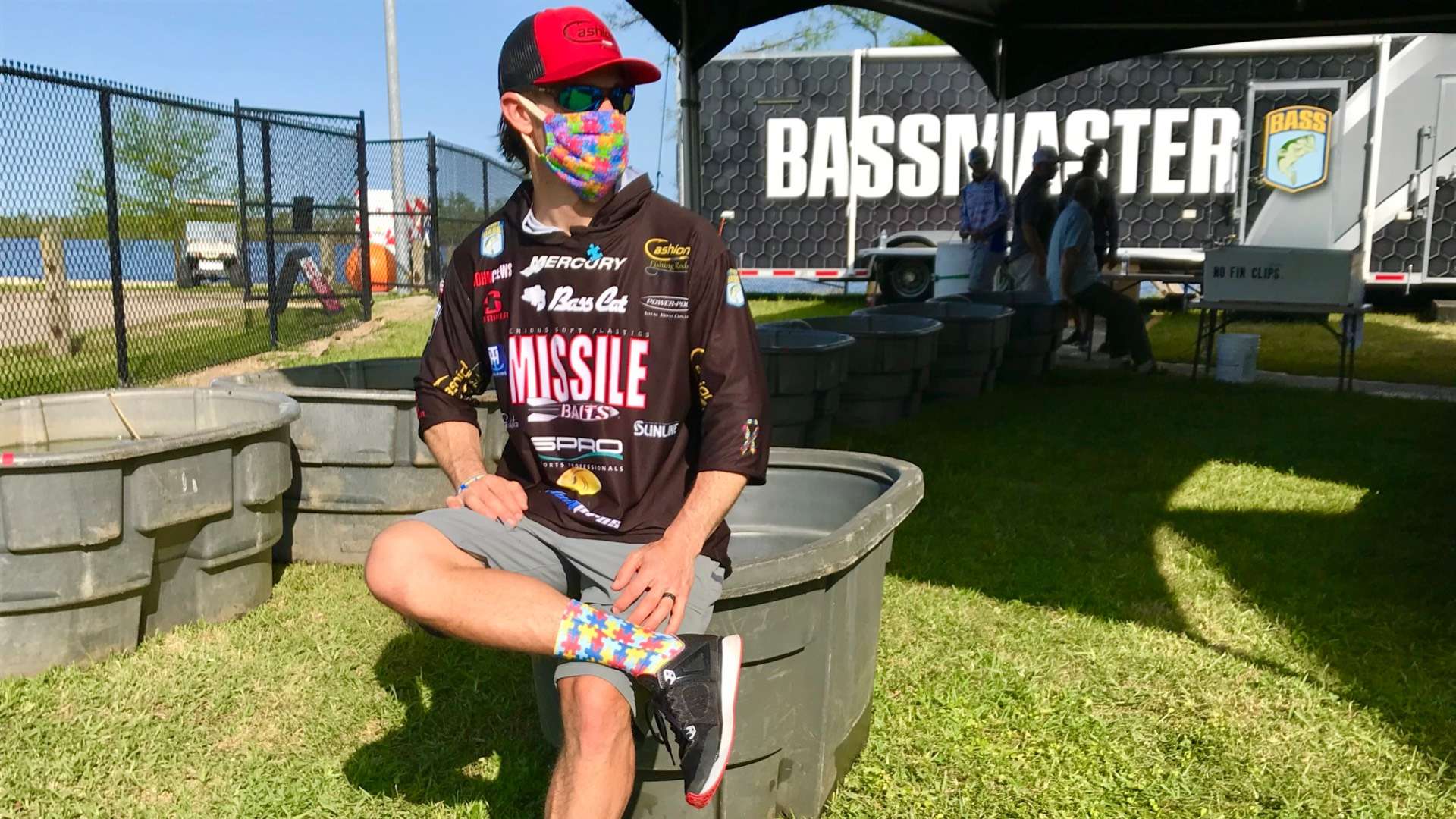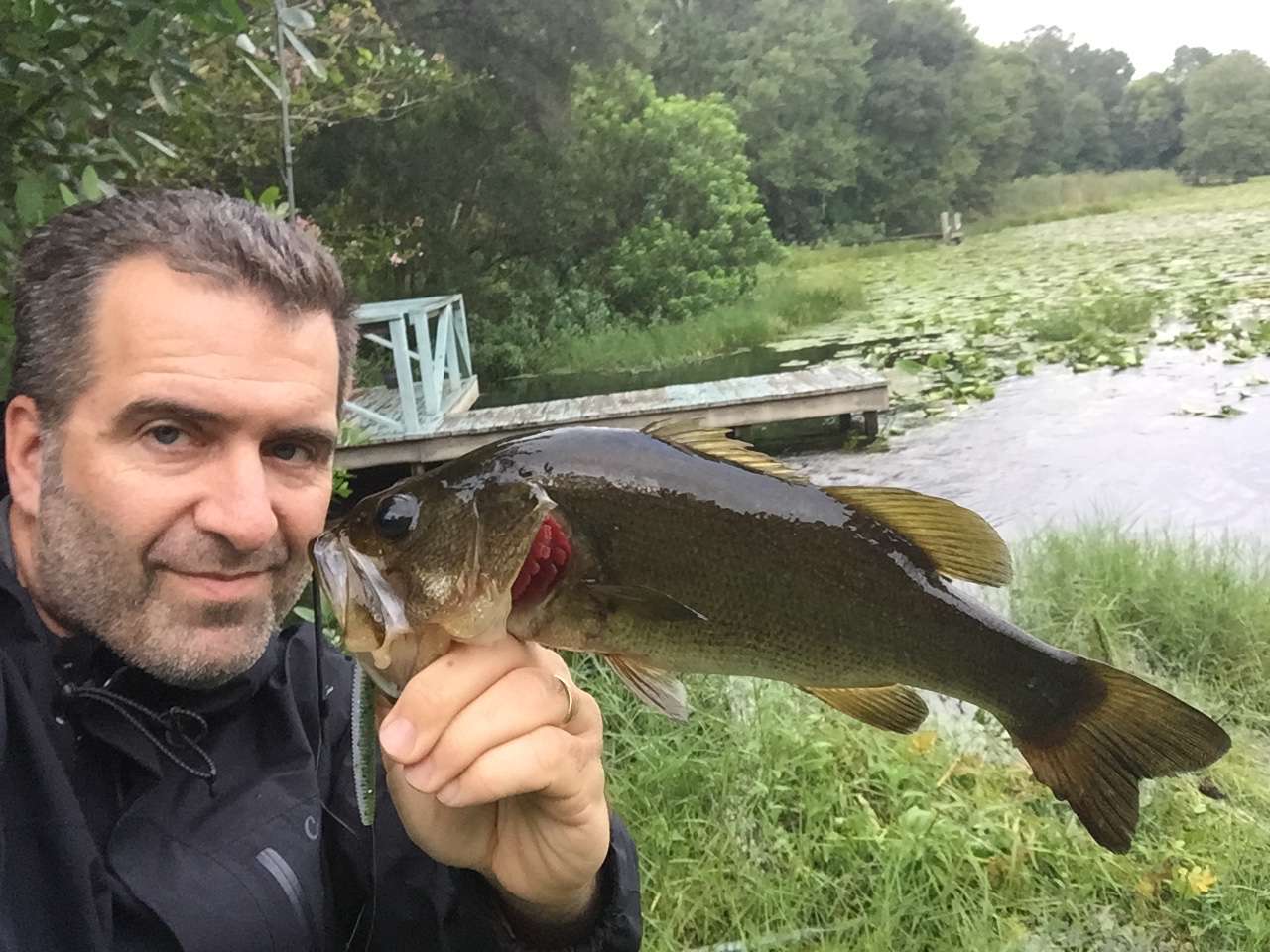
Fishing a Bassmaster Elite tournament often requires anglers to assemble the pieces of a diverse puzzle. Interesting then, that the symbol widely used for autism is a puzzle piece.
We’ll get to that in a moment, but for now, national advocacy organization, Autism Speaks offers this summary: Autism, or autism spectrum disorder (ASD), refers to a broad range of conditions characterized by challenges with social skills, repetitive behaviors, speech and nonverbal communication.
B.A.S.S. supports April’s designation as National Autism Awareness Month, so it’s important to note that ASD affects 1 in 54 children in the U.S. (Centers for Disease Control). Suffice it to say, that statistic is not lost on the anglers that chase bass throughout this nation’s top fisheries.
Taking a stand
For several years, Elite veteran John Crews has lead an angler-centered effort to raise awareness throughout the fishing community. He shares a moving perspective he promotes among his fellow competitors.
“I had heard the term autism awareness and didn’t really know what it was about until I met someone who was further along on the spectrum,” the Virginia angler said. “Once I was more aware of what it was all about, I realized that if you mention autism, half the people out there are touched by it (either directly or indirectly).”
Crews said the conversation begins with awareness, but he also encourages fundraising efforts, which benefit the ongoing educational and support efforts for families impacted by autism.
“Funds not only to research, but more importantly, they go toward (efforts to help) people function, like autism centers,” Crews said. “Depending on where a person is on the spectrum, there are different ways an autistic person can learn to function — life skills.”
Crews relates a breakthrough moment when a friend who had been struggling to connect with his autistic child received a game-changing tip from another parent who had faced similar challenges. The advice: Simply touch your child’s shoulder when speaking to them.
Crews proudly wears the Autism Aware socks and face mask, along with the wrist band his company sells at MissileBaits.com. All proceeds go to My Little Buddy’s Boat, which provides resources for professional help and direction for families with autistic children, while promoting fishing as a bonding activity.
Visit the B.A.S.S. online store and you’ll find a T-shirt with the logo modified to include multi-colored puzzle pieces. During Autism Awareness Month, B.A.S.S. donates a portion of this T-shirt’s sales to Autism Speaks.
Hitting home
All this means a lot to Bassmaster Emcee Dave Mercer who learned of his daughter Cadance’s autism diagnosis at a memorable moment.
“I found out Cadence was autistic right before I went onstage at the very first Bassmaster Classic I emceed,” Mercer said. “That was 11 years ago and since that time, the worldwide change in acceptance has been amazing.”
Mercer addresses two deeply resonating points:
Make the Effort: “To me, awareness means inclusion,” Mercer said. “I never realized how much that mean until I saw it from my very own daughter. The first time the Elites (promoted) Autism Awareness, all of a sudden, my daughter was like ‘It was really cool to feel included. People cared and people noticed.’
“It’s not that autistic people of any age are looking for it, but it is one of those deals where (inclusion) kinda gets overlooked. For Cadance, it made her feel comfortable and it made her feel accepted in something she loves. All of the sudden, these people that she watched included her and accepted her.”
No Judgement: This is the gut check. We’ve all experienced it and it tests us; but when the family of an autistic person has to deal with a public episode, that’s when humanity needs to take a deep breath, trash the preconceived ideas and think one word — compassion.
No one plans these moments; certainly, no one wants them to happen, but consider this: What may be a few minutes of disruption for most is a 24/7/365 reality for a family living with autism.
“As a parent, all I’d ask is the next time you see that kid at an airport or in a mall and they’re just having a temper tantrum, don’t draw attention to it,” Mercer said. “The best way to make it easy for an autistic child’s parent is not to give them that snicker or that glance; give them that understanding look, or don’t look at them at all.
“Before I had an autistic kid, I was that person that would see someone freaking out in an airport and think ‘Wow, that’s a spoiled kid.’ That’s not a spoiled kid; that’s a kid that’s been overstimulated and they’re literally melting down. But I think those that meltdown only do so because they’re incredibly brilliant.”
Mercer offers a most telling perspective: “My wife says ‘Autism means you don’t see the things that everybody notices, but you see the things that nobody notices.”
Crews adds this: “Depending on where they are on the spectrum, people with autism can have very functional and fulfilling lives. They want to go out and do things, but in the past, they’ve often been forced to not go anywhere for fear of an episode (uncontrolled outbursts, tantrums, etc.)
“But if you learn to control the (episodes), more activities are possible. And even if there is an episode, I think more people are learning to be understanding. I just think talking about it is important and B.A.S.S. gives us a huge platform to do good things with this.”
As Mercer points out, simply wearing a wrist band or participating in a fundraiser may seem like a small gesture, but the message is hugely appreciated.
“You may think that it’s really not affecting things, but then you see it through the eyes of someone who deals with that every day and for their whole life, autism has been seen as a challenge,” Mercer said. “Then, you see this group of anglers and people supporting it, that makes them feel like they’re not alone.
“As a parent and somebody who works with all these anglers and B.A.S.S., it makes me feel really proud that they’ve done that.”
Making it fit
So, how ‘bout that symbol?
Mercer explains: “The reason the autism logo is a puzzle piece is that everybody’s different. For some autistic people, they can see the flash in a fluorescent light and you can imagine living life in a strobe light and why that would throw you off.
“So, I’d say: Be accepting. Autistic people aren’t doing things because they have control over it. Everybody’s mind works differently.”
So, how can you help? As Crews notes, national organizations like Autism Speaks carry the banner for research, awareness and outreach. Support as you see fit, but Crews also points to the grassroots angle.
“I always tell people to search around you for autism centers and you may be surprised what’s right in your backyard,” Crews said. “I’ve done several things with the Blue Ridge Autism and Achievement Center in Roanoke, Va. The people that work there, it’s unbelievable to watch the interaction and the love they have.
“The teachers are from all walks of life, different ages, a lot of young people and they have a passion for helping special needs people. It’s very touching to watch and this is just one center. This happens all over the country.”
Awareness, understanding, involvement. There’s a place for everyone.

